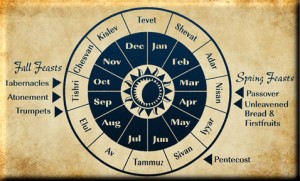 Exodus 23
Exodus 23
20 “Behold, I send an angel before you to guard you on the way and to bring you to the place that I have prepared. 21 Pay careful attention to him and obey his voice; do not rebel against him, for he will not pardon your transgression, for my name is in him. 22 “But if you carefully obey his voice and do all that I say, then I will be an enemy to your enemies and an adversary to your adversaries. 23 “When my angel goes before you and brings you to the Amorites and the Hittites and the Perizzites and the Canaanites, the Hivites and the Jebusites, and I blot them out, 24 you shall not bow down to their gods nor serve them, nor do as they do, but you shall utterly overthrow them and break their pillars in pieces. 25 You shall serve the Lord your God, and he will bless your bread and your water, and I will take sickness away from among you. 26 None shall miscarry or be barren in your land; I will fulfill the number of your days. 27 I will send my terror before you and will throw into confusion all the people against whom you shall come, and I will make all your enemies turn their backs to you. 28 And I will send hornets before you, which shall drive out the Hivites, the Canaanites, and the Hittites from before you. 29 I will not drive them out from before you in one year, lest the land become desolate and the wild beasts multiply against you. 30 Little by little I will drive them out from before you, until you have increased and possess the land. 31 And I will set your border from the Red Sea to the Sea of the Philistines, and from the wilderness to the Euphrates, for I will give the inhabitants of the land into your hand, and you shall drive them out before you. 32 You shall make no covenant with them and their gods. 33 They shall not dwell in your land, lest they make you sin against me; for if you serve their gods, it will surely be a snare to you.”
Like so many others, I have really come to appreciate the music ministry of Kari Jobe. There is a sincerity about her songs of worship that really does lead the listener to a place of praise and gratitude to God most high. For instance, her song “I Am Not Alone” is a song that is beautiful in its simplicity but also powerful in what it says about the Christian’s relationship with the Lord God.
When I walk through deep waters
I know that You will be with me
When I’m standing in the fire
I will not be overcome
Through the valley of the shadow
I will not fear
I am not alone
I am not alone
You will go before me
You will never leave me
In the midst of deep sorrow
I see Your light is breaking through
The dark of night will not overtake me
I am pressing into You
Lord, You fight my every battle
And I will not fear
You amaze me
Redeem me
You call me as Your own[1]
I suppose that every believer at one time or another has needed the reassurance of the central message of this song: I am not alone. Why? Because God has gone before us and God will never leave us.
In many ways, we might say that “I am not alone” is a more than apt summary of Exodus 23:20-33. Having finished the preceding section of laws, the Lord now reminds His children that He will lead them into the promised land, that He will be with them, that, if they obey Him, they will find success there, and that they will never be alone.
Continue reading →
 Mark 6
Mark 6
 Just a little note to say that I am preaching revival services at First Baptist Church, Newport, Arkansas, this week so there will be no sermon audio or manuscripts posted until next week. It has been an honor to be able to spend time in worship this week with this wonderful church, with Greg Dills, their pastor, and with Billy Davis, the Central Baptist Church Minister of Music who is leading the worship team in revival this week. Please pray for tonight’s concluding meeting. We’ve seen the Lord do amazing things!
Just a little note to say that I am preaching revival services at First Baptist Church, Newport, Arkansas, this week so there will be no sermon audio or manuscripts posted until next week. It has been an honor to be able to spend time in worship this week with this wonderful church, with Greg Dills, their pastor, and with Billy Davis, the Central Baptist Church Minister of Music who is leading the worship team in revival this week. Please pray for tonight’s concluding meeting. We’ve seen the Lord do amazing things! Exodus 23
Exodus 23 1 John 2
1 John 2 When I was in high school I was in a music store in Sumter, SC, when I noticed an album with a monk on the cover. I was intrigued so I bought it. I was immediately struck by and drawn to the beautiful, meditative music of
When I was in high school I was in a music store in Sumter, SC, when I noticed an album with a monk on the cover. I was intrigued so I bought it. I was immediately struck by and drawn to the beautiful, meditative music of 
 Exodus 23
Exodus 23